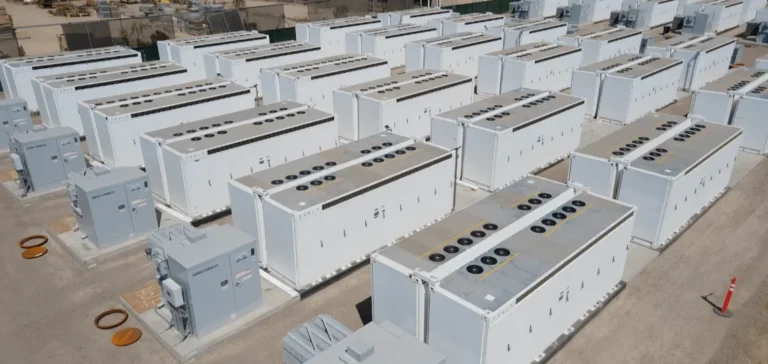The battery energy storage system (BESS) sector saw its competitive landscape intensify in 2024, according to the annual global ranking published by Wood Mackenzie. Tesla still holds the leading position with a 15% market share, but China-based Sungrow has narrowed the gap to 14%, compared to a four-point difference between the two companies the previous year. CRRC rounds out the top three with an 8% share, with podium positions unchanged for the second consecutive year.
Reshaping of regional market shares
Chinese integrators have increased their presence in the European market, recording a 67% growth in market share. Four of the top ten players in Europe are now companies headquartered in China. Conversely, the share of Chinese companies in North America fell from 23% to 16%, a direct result of geopolitical tensions and strengthened protectionist measures in the United States.
Tesla maintains the lead in North America for the third consecutive year, holding 39% of the market. Sungrow remains in second place, but its share dropped from 17% to 10% in one year. Powin is ranked third in this market. The concentration of the North American market continues to decline, with the top five players now accounting for 73% of the market, down from 90% the previous year.
Fragmented dynamics in Europe, Asian dominance
In the European market, Sungrow moves into first place with a 21% share, representing an eleven-point increase. Nidec and Tesla occupy the second and third positions. The European market has become more fragmented, with the combined share of the top five players falling to 70%, down from 86% previously.
In Asia, CRRC maintains its leadership while Sungrow climbs from fourth to second position. Envision completes this leading trio. Chinese companies dominate the region, controlling more than 90% of the market share and consolidating their prominence in this segment.
The Middle East, a new growth lever for Chinese integrators
The Middle East is emerging as a key market, with Sungrow, BYD and Huawei having a strong presence in regional projects. Forecasts predict an installed capacity of 31 GW/115 GWh by 2034, driven by national decarbonisation targets and growing energy demand.
Seven of the world’s top ten battery storage system integrators are now Chinese, the result of strong domestic competition and overcapacity leading to international expansion, especially towards Europe and the Middle East. According to Kevin Shang, principal analyst at Wood Mackenzie, “The global BESS integrator landscape is becoming more complex due to trade policies and geopolitical tensions, changing competitive dynamics.”





















